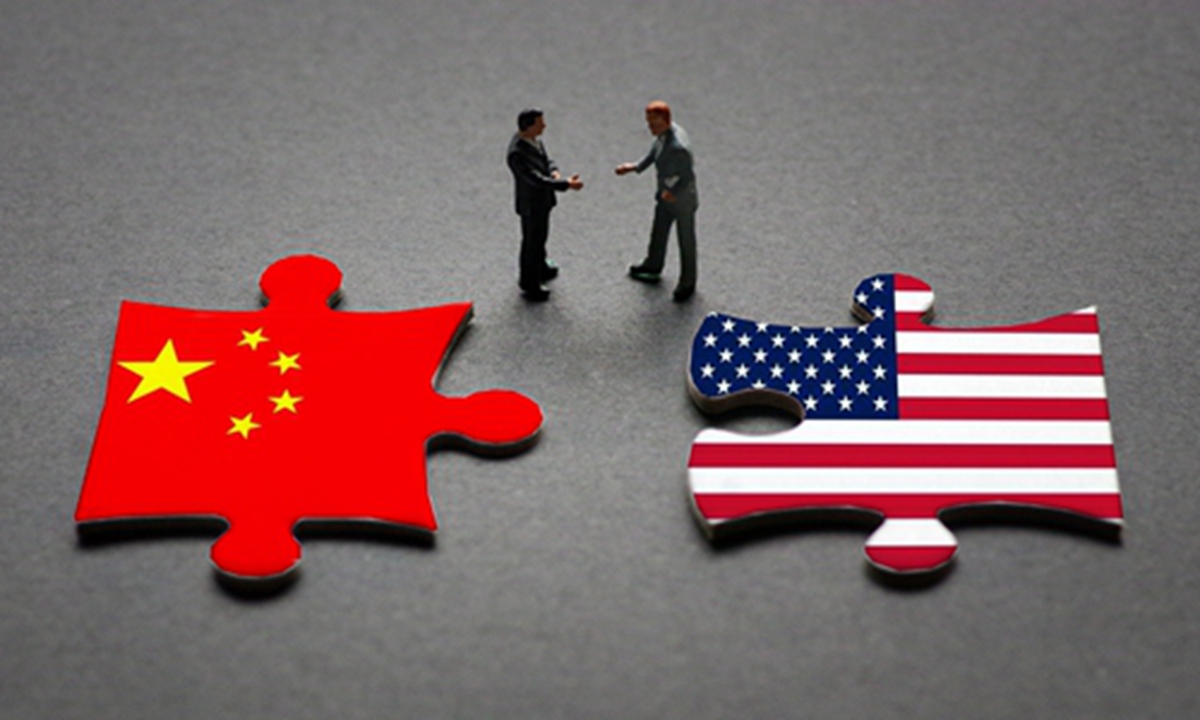
Photo: IC
High-ranking government officials of China and the US are scheduled to hold the first official dialogue in Alaska from Thursday to Friday this week.
The meeting differs from the "two-plus-two" strategic dialogue of foreign and defense ministers of the US and Japan, or the previous rounds of US-China Strategic and Economic Dialogue. This seems to be the initial platform for the world's two major nations and economies to reset bilateral relationship.
The new round of China-US high-level dialogue may become the new starting point for the bilateral relationship. After a haphazard response to the coronavirus pandemic and his attempt to blame China, former US President Donald Trump at the end of his four-year term set the US on an irrational tough-on-China path by launching a blame game and smearing campaign against China, even with no bottom line.
Taking an extreme so-called "decoupling" approach, the previous Trump administration had almost totally gave up official dialogue channel with China.
Washington has increased interactions with Beijing since Joe Biden took office in January. Chinese top diplomat Yang Jiechi on February 6 had a phone conversation with US Secretary of State Antony Blinken.
And, the presidents of the US and China held a phone call on Chinese New Year's Eve. With the upcoming high-level dialogue, Biden to some extent has reversed from his predecessor's confrontational engagement.
The Biden administration's foreign policy toward China is believed to come with the precondition "in America's interest." While not seeming the same as Trump's arbitrary "America First" diplomatic approach, Biden's stance is not very much different from the bullying approach of Trump. Therefore, some US high-level officials including Blinken have tried to put the responsibility of current relationship predicament to Chinese side, and asked China to take "corrective" moves first, which will hamstring improvement of bilateral ties.
It was the previous US administration which tried to push the bilateral relationship to the edge of the cliff. From economic decoupling, military containment to abandoning the one-China principle, the Trump administration had gone too far. In contrast, China has been exercising maximum restraint, saving the China-US relationships from the dangerous path of a new Cold War.
Biden's difficulty in steering China-US relationship is understandable. The "Trump legacy" has caused profound destructive impact on US politics.
With urgent priority to turn the virus-stricken economy around and a horde of anti-China forces in Congress, it's a daunting task for Biden to correct his predecessor's tough anti-China stance. However, US Democrat politicians should understand that to launch groundless punitive actions against China will not help them get out of their current difficulties.
The top priority for the US and China is to prevent the bilateral relationship from spiraling down to the abyss. China stresses the "red line" of core national interests and has no room for concession or compromise. If the US side continues to push responsibilities to China, it will be not conducive for both sides to conduct high-level talks. China and the US should eye the future and jointly clear the obstacles.
The China-US high-level dialogue in Alaska should focus on expanding cooperation. China believes the two nations have cooperation room in areas such as climate management, pandemic control and crisis management, which has also received positive response from the US side. To develop the agreements among their teams of experts into a diplomatic coordination mechanism may become one of the highlights of the upcoming high-level talks.
US and China are two major powers and they ought to cooperate and coordinate to resolve a series of global challenges, such as reactivating their economies and working together to improve the world's response to a future pandemic or other natural disasters.
The bilateral relationship faces great challenges but opportunities too. The high-level dialogue will be likely to be a new starting point or a turning point for their bilateral relationship. Although the road is tortuous, the prospects are bright.
The author is executive vice dean of Fudan Institute of Belt and Road & Global Governance. bizopinion@globaltimes.com.cn




